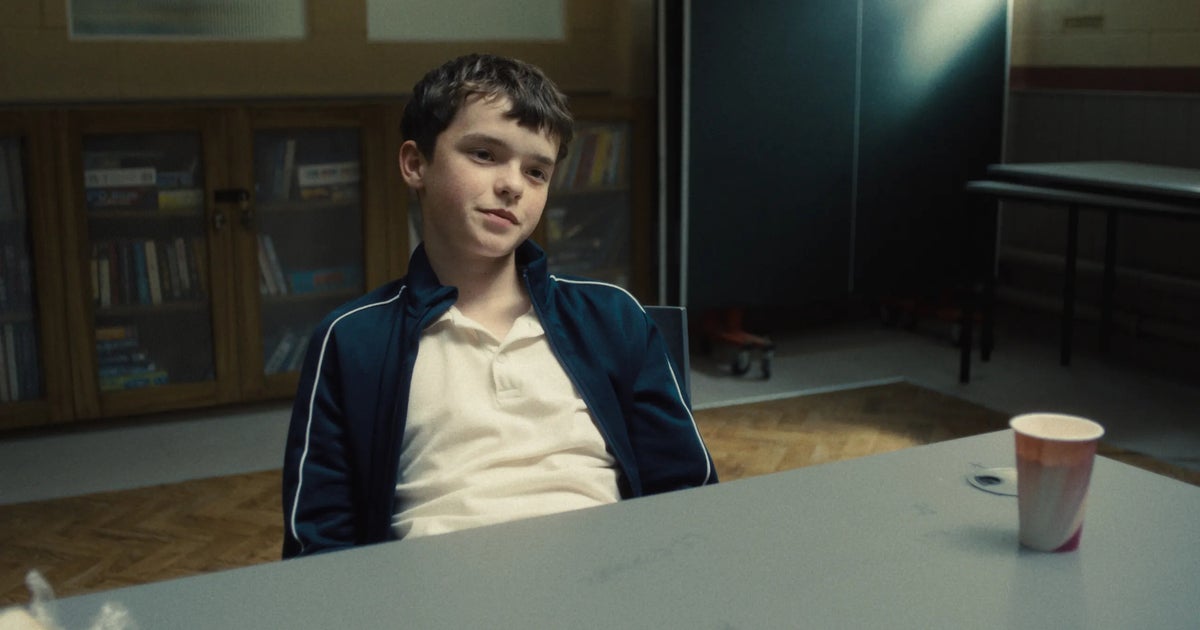Wayne Hawkins believes terminally ill people should be able to die when they choose, but others in the state disagree.
Putin’s Ambassador Has Taken Trolling To The Next Level With Bizarre Jibe At Europe

Europe is trying to “occupy” Ukraine by offering to send peacekeeping troops to the war-torn country, according to a Russian diplomat.
UK prime minister Keir Starmer has offered to put British boots on the ground to support Kyiv if Russia agrees to the US’s peace plans – and as long as there is an American security guarantee.
Advertisement
Some EU countries and Nato allies have already indicated they would join this plan, as part of Starmer’s “coalition of the willing”.
Moscow has not agreed to a permanent truce yet, nor has Donald Trump agreed to provide a security backstop to a peacekeeping plan, so any such plan is still a long way off.
But Rodion Miroshnik – Putin’s so-called “ambassador-at-large” for Ukraine’s alleged “crimes” – attempted to cast doubt on the offer to send a “reassurance force” on Wednesday.
Advertisement
According to the Russian state news agency TASS, Miroshnik said: “The Europeans have announced a project to build a reassurance force that, according to the organisers, will be sent to Ukraine after a peace agreement is signed.
“This could, in fact, be viewed as a blatant occupation of Ukraine by Europe.”
It was Vladimir Putin who invaded Ukraine in 2022 and who continues to occupy a fifth of its sovereign territory.
Moscow has even claimed Ukraine would have to formally cede that occupied land in any permanent truce.
Advertisement
But Miroshnik still bizarrely alleged Europe wants to “take control over [Ukraine’s] political regime militarily while retaining external governance of this land regardless of how negotiations may end.”
Ukraine has actually welcomed any physical support from its allies, and asked for at least 200,000 troops to deter any future Russian aggression.
President Volodymyr Zelenskyy said this week that Kyiv was meeting with several countries “who are ready to deploy a contingent in one form or another”.
Advertisement
Women to continue having babies later, says ONS
The ONS also projects women will continue having smaller families than previous generations.
So THAT’s Why Your Gym Has 50 Treadmills But Only 1 Squat Rack

This morning, I left my spin class, walked up to the weights section to get the rest of my workout in, and promptly turned back around.
The squat rack (my huge, bustling gym only has one) had a three-person line around it, excluding the lifters circling, keen-eyed, like beefy kestrels.
Advertisement
Meanwhile, dustballs might as well have been blowing across the grey acres of treadmill belts upstairs.
Why does this happen? After all, my experience is far from unique – Redditor u/IndependentHawk9655 asked the members of r/AskUK, “Why does every chain gym in the UK still prioritise cardio equipment that never gets used over the weights room/resistance machines which are always absolutely rammed?”
So, we spoke to Maria Vazquez, head of training at MYWOWFIT, about what’s really going on.
Advertisement
It’s strategic
“It’s all about strategy,” Vazquez told HuffPost UK.
She explains that “Most beginners are more comfortable jumping on a treadmill or elliptical than going straight to strength training equipment.
“So having a lot of cardio machines means gyms can accommodate the high volume of new members who are still getting into their routine.”
From a financial standpoint, gyms rely on inactive members to make a profit – a strategy Gen Z is ruining.
Advertisement
Then, there’s safety to consider.
“Machines like treadmills and ellipticals require less supervision, lower liability risk,” Vazquez shared.
“Squat racks and Smith machines require more space, proper form and sometimes a spotter which can deter some gym goers.”
Lastly, there’s the time math; a treadmill user might be on there for 40 minutes, while someone is unlikely to spend that long on a Smith machine.
Advertisement
The lifter, unlike the runner, can allow someone else to “work in” their sets too.
But if that logic is sound, why is the squat rack still always busy?
The problem is that gyms might not have adapted to new trends, the expert said.
“In my experience, this [pattern of equipment use] is all changing. More people are getting into strength training and gyms are starting to balance out their offerings,” Vazquez explained.
“There is definitely a demand for more squat racks, benches and space for heavier lifting. But for now, cardio will probably remain the priority because it’s just more practical for the majority.”
Public satisfaction with NHS hits record low
A fifth 21% happy with NHS in Britain, finds long-running poll, with waits and staffing of major concern.
Rocky Mountain snow is contaminated, study shows

Mountain snowpacks accumulate snow throughout the winter, building up stores of water that will supply communities across the American West throughout the long dry season. Now, a new study shows that as storms carry snow to the Rocky Mountains, they are also bringing mercury and other contaminants from mines in the region. The research helps scientists understand how contaminants are spread by atmospheric circulation and has implications for snowpack preservation and illuminating the lasting environmental impact of mining activities.
The study, published in the May issue of the journal Environmental Pollution, examined contamination levels for Mercury, Zinc, Cadmium and Antimony from nearly 50 sites in the Rocky Mountains. DRI’s Monica Arienzo, Associate Research Professor of Hydrology, led the research, along with colleagues from the U.S. Geological Survey (USGS), the University of Nevada, Reno, and Portland State University. They found higher levels of metal contaminants in the northern Rockies and identified mines in the Pacific Northwest, Idaho, and Montana as the likely source by following winter storms back in time. It is one of the first studies to look at metal contamination across the greater Rocky Mountains.
“Metal pollution in the Rockies is relatively understudied,” Arienzo said. “Other studies have focused on certain parts, so the fact that we have this transect from Montana to New Mexico makes this study unique.”
Although contamination levels were found to be within guidelines set by the EPA for both drinking water and aquatic life, dust can accelerate snowmelt by decreasing the reflectivity of the snowpack. The data can also provide critical information about how environmental contaminants and dust are distributed by the atmosphere.
The study combined a number of data sets to capture a comprehensive understanding of the amount of metal contamination making its way to the region. First, snow samples were collected from 48 sites throughout the Rocky Mountains during the spring of 2018. The researchers then measured metal concentrations in each sample, including metals like calcium that come from natural dust rather than human activities. By comparing the amounts of purely dust-sourced metals to those that result from both dust and industrial activities like mining, the scientists determined how much metal contamination stemmed from human activities.
To strengthen their findings, they then examined data from the National Atmospheric Deposition Program that measured mercury and calcium in precipitation from 2009 through 2018. Again, the scientists saw higher amounts of metal contamination in the northern Rockies, across Montana, Idaho, and Northern Wyoming.
“I was surprised by the amount of agreement we saw between all these different data sets we brought together,” Arienzo said. “The snow samples showed us that contamination is higher in the northern Rockies, and that was really interesting. Looking at mercury contamination over time helped us say that 2018 is not just a fluke. When you start to see these trends that are consistent between different records, it makes you feel more confident that something’s really happening here.”
To determine the likely source of the contaminants, Arienzo and her colleagues tracked the winter’s storms back through time. For the northern Rockies, many of the storms had moved in from the Pacific Northwest region, whereas in the southern stretch of the mountains, storms came from across the Mojave Desert.
By referencing a USGS dataset that tracks mining and smelting locations, the scientists identified active sites near the northern Rockies. An examination of EPA Superfund locations uncovered historical sites that could also be sources of contamination.
“Our idea is that the dust from current and historical mining sites gets carried up into the mountains and deposited across our study sites,” Arienzo said. “This study shows the importance of continued scientific monitoring efforts, like the long-term USGS datasets we used here, as well as mitigation of current and historical mining sites.”
The research is part of a larger study, supported by the National Science Foundation (NSF), using tree rings to examine historical mercury contamination. Arienzo and her team will compare the mercury record found in tree rings to that found in the snowpack to better understand how mercury is deposited and spread throughout the environment.
New insight into factors associated with a common disease among dogs and humans

The pathogens Giardia duodenalis and Cryptosporidium are common causes of sometimes-fatal intestinal diseases in humans, other mammals and birds worldwide.
Now, findings from researchers at Texas A&M University provide new, evidence-based insight into minimizing the risk of these diseases at canine facilities.
“In adult, healthy humans and animals, these diseases usually cause diarrhea and occasionally other minor ailments, but for infants, puppies and the immunocompromised, infection could be deadly,” said Loni Taylor, PhD, DVM, an epidemiologist with the Texas A&M University School of Public Health, who led the study. “We wanted to identify the factors associated with kennel-housed dogs in Texas that test positive for both diseases.”
For their study, published in Comparative Medicine, Taylor and five colleagues with Texas A&M’s College of Veterinary Medicine & Biomedical Sciences sought to find out if a dog’s score on the Purina Fecal Scoring chart, breed, sex or age was associated with testing positive on a fecal screening test for either Giardia, Cryptosporidium or both organisms together.
To accomplish this, they tested fecal samples collected from a census sample of 153 clinically normal dogs housed at Texas kennels between March and October 2021. Breeds included golden retrievers, Labrador retrievers, beagles and a variety of large hounds and hound mixes.
The sex, age, breed and location were noted for the 153 dogs studied. In addition, fecal scores were determined by a single researcher using visual assessment of the samples, based on the Purina Institute metric (where 1 is hard and 7 is watery).
A secondary data analysis and statistical analysis found that dogs were significantly more likely to test positive for Giardia (45%) than Cryptosporidium (7%) (P < 0.01), although no clear link was found between sex or breed and these infections.
In addition, kennel-housed dogs 18 months of age or younger had 3.4 times the odds of Giardia infection compared with older dogs, and hard stool was associated with negative test status for Giardia in the stool.
No statistically significant relationship was found for age or fecal score and Cryptosporidium-positive test status, and Taylor noted that additional studies with larger sample sizes could help identify such a relationship.
“The primary takeaway is that age and fecal score are important factors for choosing which dogs to screen for subclinical Giardia,” Taylor said. “And given the increased odds of Giardia infection, screening should be as robust as the recommended combination of testing methods.”
Metasurfaces: Bilayer device can control many forms of polarized light

Almost a decade ago, Harvard engineers unveiled the world’s first visible-spectrum metasurfaces — ultra-thin, flat devices patterned with nanoscale structures that could precisely control the behavior of light. A powerful alternative to traditional, bulky optical components, metasurfaces today enable compact, lightweight, multifunctional applications ranging from imaging systems and augmented reality to spectroscopy and communications.
Now, researchers in the Harvard John A. Paulson School of Engineering and Applied Sciences (SEAS) are doubling down, literally, on metasurface technology by creating a bilayer metasurface, made of not one, but two stacked layers of titanium dioxide nanostructures. Under a microscope, the new device looks like a dense array of stepped skyscrapers.
The research is published in Nature Communications.
“This is a feat of nanotechnology at the highest level,” said senior author Federico Capasso, the Robert L. Wallace Professor of Applied Physics and Vinton Hayes Senior Research Fellow in Electrical Engineering at SEAS. “It opens up a new way to structure light, in which we can engineer all its aspects such as wavelength, phase and polarization in an unprecedented manner…It signifies a new avenue for metasurfaces that so far has been just scratching the surface.”
For centuries, optical systems have relied on bulky, curved lenses made of glass or plastic to bend and focus light. The SEAS-led metasurface revolution of the last decade has produced flat, ultra-thin structures patterned with millions of tiny elements that can manipulate light with nanometer precision. A striking example technology is the metalens: Unlike conventional lenses, metalenses can be fabricated with existing semiconductor manufacturing, making possible compact, integrated optical systems in devices like smartphones, cameras, and augmented reality displays.
After Capasso’s team reported their first working metalens that can bend visible light, they worked with Harvard’s Office of Technology Development to license the technology and start a company, Metalenz. They’ve since demonstrated a host of potential applications, including an endoscope, an artificial eye, and a telescope lens.
But the single-layer nanostructure design Capasso’s team invented has been in some ways limiting. For example, previous metasurfaces put specific requirements on the manipulation of light’s polarization — that is, the orientation of the light waves — in order to control the light’s behavior.
“Many people had investigated the theoretical possibility of a bilayer metasurface, but the real bottleneck was the fabrication,” said Alfonso Palmieri, graduate student and co-lead author of the study. With this breakthrough, Palmieri explained, one could imagine new kinds of multifunctional optical devices — for example, a system that projects one image from one side and a completely different image from the other.
Using the facilities of the Center for Nanoscale Systems at Harvard, the team that included former postdoctoral researchers Ahmed Dorrah and Joon-Suh Park came up with a fabrication process for freestanding, sturdy structures of two metasurfaces that hold strongly together but do not affect each other chemically. While such multi-level patterning has been common in the silicon semiconductor world, it had not been as well explored in optics and metaoptics.
To demonstrate the power of their device, the team devised an experiment in which they used their bilayer metalens to act on polarized light in the same way that a complicated system of waveplates and mirrors does.
In future experiments, the team could expand into even more layers to exert control over other aspects of light, such as extreme broadband operation with high efficiency across the entire visible and near infrared spectrum, opening the door to even more sophisticated light-based functionalities.
The research was supported by several federal funding sources, including the Office of Naval Research under grant No. N00014-20-1-2450, and from the Air Force Office of Scientific Research under grant No.s FA9550-21-1-0312 and FA9550-22-1-0243. The devices were made at the Harvard University Center for Nanoscale Systems, part of the National Nanotechnology Coordinated Infrastructure Network, which is supported by the National Science Foundation under NSF award No. ECCS-2025158.
Staff acknowledgments: Stephan Kraemer supported the focused ion beam process, and Mac Hathaway supported the atomic layer deposition process.
Kemi Badenoch Has Repeated A Conspiracy Theory About Adolescence Denied By Its Creator

Kemi Badenoch has repeated a conspiracy theory about Adolescence which has been denied by one of the programme’s creators.
The Tory leader told GB News that the Netflix drama is “based on a real story, but my understanding is that the boy who committed that crime was not white”.
Advertisement
In the show, a white boy is arrested after a young girl is stabbed to death.
Posting on X, the right-wing commentator Ian Miles Cheong told his 1.2 million followers: “Netflix has a show called Adolescence that’s about a British knife killer who stabbed a girl to death on a bus and it’s based on real life cases such as the Southport murderer.
“So guess what. They race swapped the actual killer from a black man/migrant to a white boy and the story has it so he was radicalized online by the red pill movement.
“Just the absolute state of anti-white propaganda.”
X owner Elon Musk replied the post saying: “Wow.”
Advertisement
He told the News Agents podcast: “They’ve claimed that Stephen and I based it on a story, and another story, so we race-swapped because we were basing it on here and it ended up there, and everything else. Nothing is further from the truth.
“I have told a lot of real life stories in my time, and I know the harm that can come when you take elements of a real life story and put it on screen and the people aren’t expecting it. There is no part of this that’s based on a true story, not one single part.”
He added: “We’re not making a point about race with this. We are making a point about masculinity. We’re trying to get inside a problem. We’re not saying this is one thing or another. We’re saying this is about boys.”
He said: “Where it came from, for me is there was an incident in Liverpool, a young girl, and she was stabbed to death by a young boy. I just thought, why?
“Then there was another young girl in south London who was stabbed to death at a bus stop. And there was this thing up north, where that young girl Brianna Ghey was lured into the park by two teenagers, and they stabbed her. I just thought, what’s going on? What is this that’s happening?”
Advertisement
There Are 8 Key Autism Terms – It’s Time You Learned Them

Recent studies reveal that about 700,000 people in the UK are autistic, which works out as around one in every 100 people in the population. Research also indicates that the numbers could be twice as high, as there are so many people still undiagnosed.
With this in mind, Dr Selina Warlow, a clinical psychologist and owner of The Nook Neurodevelopmental Clinic, has shared a glossary of terms that give insights into some of the traits of autism, providing support when it comes to recognising symptoms.
Advertisement
She says: “Conversation around neurodiversity is becoming normalised, and that’s so positive to see.
“But the figures show a need for more awareness to help people identify whether they [are autistic], so they can start their assessment journey. Receiving a diagnosis can open access to expert resources that support autistic people to thrive in society.”
From masking to autistic burnout – a psychologist explains 8 traits of autism
Stimming (Self-Stimulatory Behaviour)
“Stimming is a term that refers to repetitive movements or sounds often associated with autism to manage sensory overload. This includes rocking, tapping, hand-flapping and spinning”, explains Dr Warlow.
While these aren’t exclusive to autistic people, autistic people are more likely to use them as tools of self-regulation.
Advertisement
“Masking is behaviour autistic people may use to hide their true characteristics to match those of neurotypical individuals”, says Dr Warlow.
“This could involve copying facial expressions, planning conversations in advance, or holding in ‘stimming’, for example swapping hand clapping, with playing with a pen.”
Autistic burnout
“Autistic burnout – being extremely tired both mentally and physically – can be associated with the act of ‘masking’ (concealing autistic behaviours) for a long period of time, or sensory or social overload.”
Advertisement
Dr Warlow shares that some of theymptoms of autistic burnout include withdrawal from social life, reduced performance, and increased sensitivity to certain stimuli.
Literal thinking
For some autistic people, language is always very literal, which can result in confusion with figures of speech, irony or indirect requests.
“For instance”, Dr Warlow adds, “being told to ‘pull your socks up’ might be understood literally, not as a motivational phrase, so using exact words may be more helpful during conversations.”
Advertisement
Assessment
Prior to diagnosis, a person showing signs of being autistic may choose to be assessed. This process can either happen through the NHS by visiting your GP or you can seek a private assessment.
Dr Warlow says that a diagnosis can be both “an emotional, but also empowering time”, while you learn about autism and adjust your lives to cater for its strengths and needs.
Hyperfocus
Hyperfocus is where an autistic person is able to focus intensely on an activity, and can become absorbed in it to the point of forgetting about the time. This is useful in work or hobbies but can result in neglect of other aspects of life such as food or rest.
Advertisement
Dr Warlow advises: “If it is possible to identify hyperfocus patterns, alarms can be used to help keep tasks moving.”
Special interests
Autistic people can have a particular interest which they find fascinating and dedicate lots of time to learning about. Special interests usually begin presenting in childhood but can also form as an adult. Special interests could include anything from dinosaurs or superheroes to hobbies like gardening.
Dr Warlow adds: “Chris Packham is an example of a person with autism who turned his childhood special interest in animals into a successful career, becoming one of the UK’s best-loved natural world TV presenters.”
Advertisement
Dr Warlow reveals that the term AuDHD – a combination of Autism Spectrum Disorder (ASD) and Attention Deficit Hyperactivity Disorder (ADHD) – is gaining traction in the neurodiverse community, with over 12,000 monthly Google searches, 375,000 posts on TikTok and 172,000 hashtags on Instagram.
“Many autistic people also have ADHD, which can bring certain benefits and difficulties at the same time. While autism is characterised by a desire for sameness and a focus on details, ADHD is defined by impulsivity and difficulty focusing.”
If you think you may be autistic, speak to your GP for a referral.






